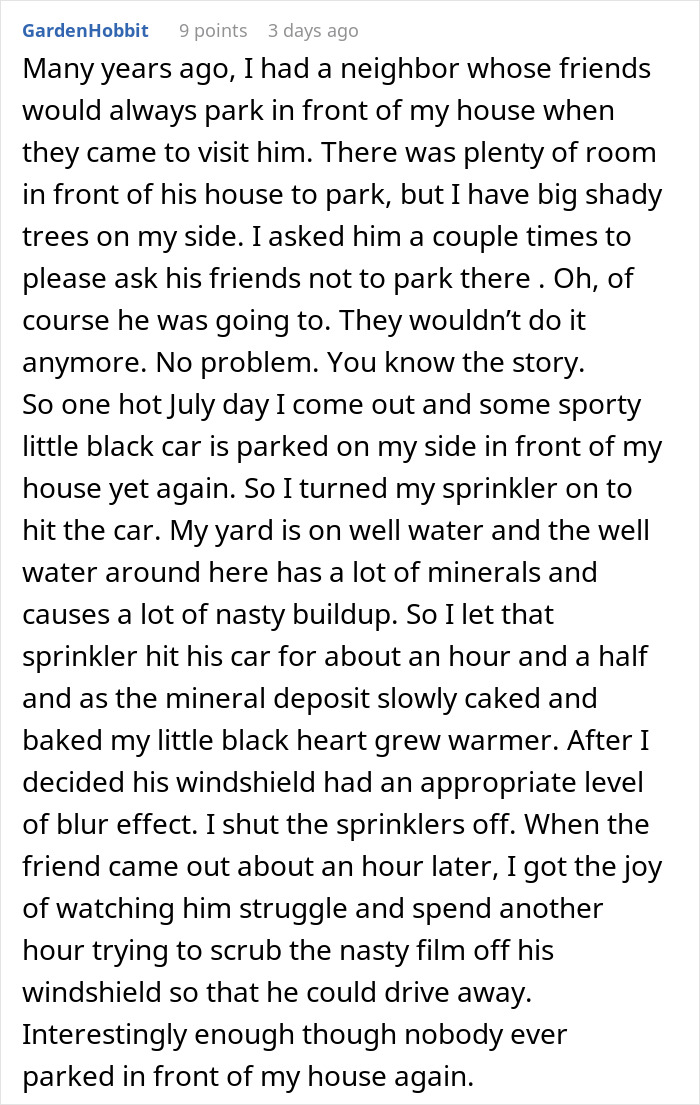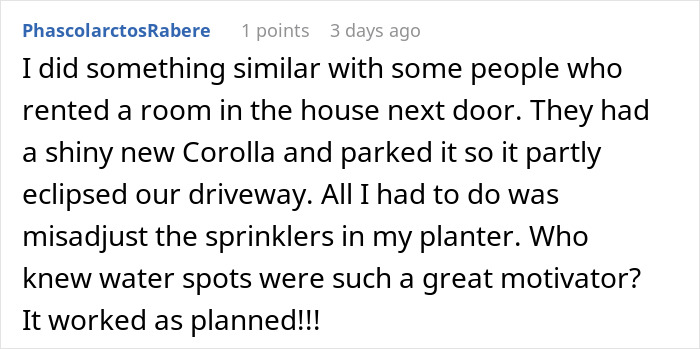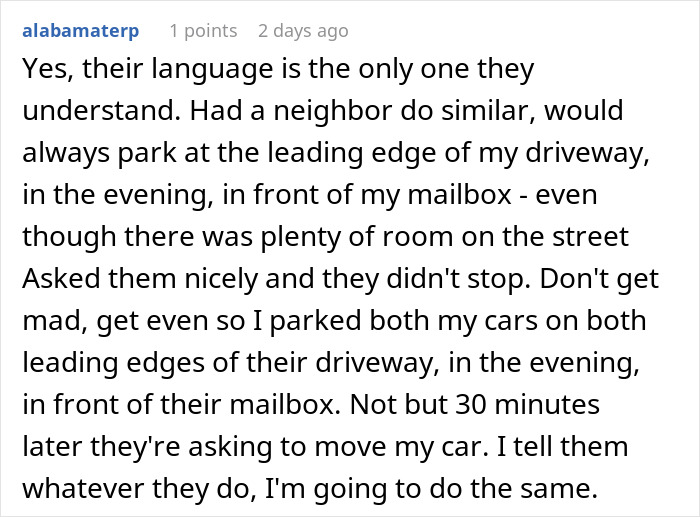While most of us recognize the idea of property lines, borders and personal space, there is a subset of folks out there who think that they can just leave things wherever. Accidents happen, but there is clearly a big difference between, for example, someone not knowing where your driveway begins and someone using your yard for storage.
A netizen shared how they got back at a neighbor who would routinely park his very large truck (is there any other kind?) on their driveway and make it hard to exit. We reached out to the person who made the post via private message and will update the article when they get back to us.
A neighbor who blocks you in regularly is a nightmare

Image credits: LightFieldStudios/Envato (not the actual photo)
So one netizen decided to take action against a man who left his truck in the wrong driveway
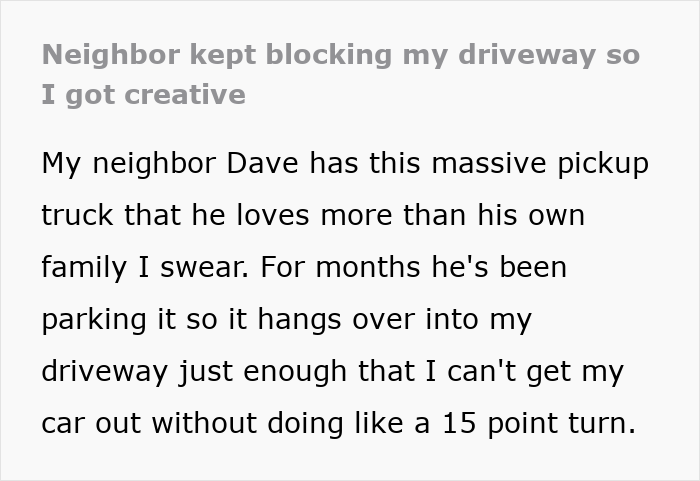
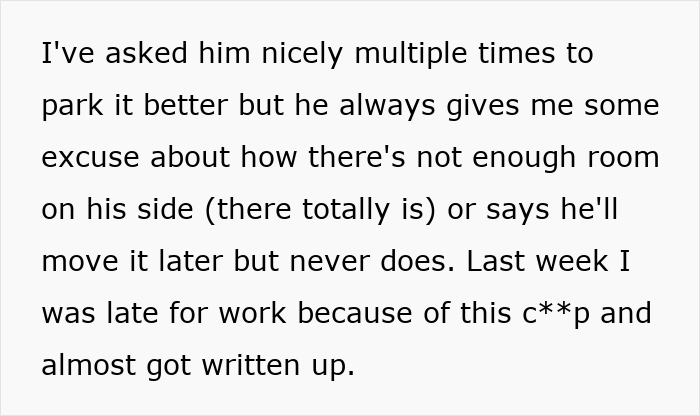
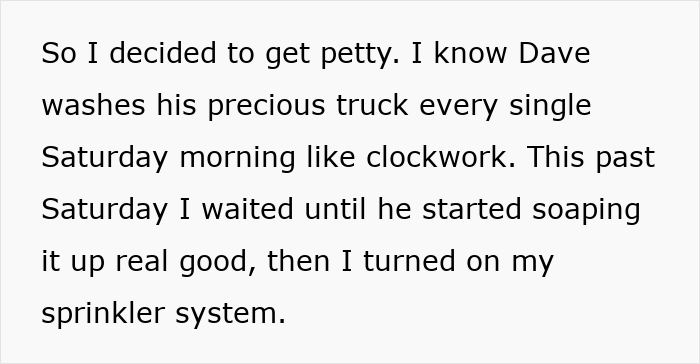

Image credits: stockcentral/Envato (not the actual photo)
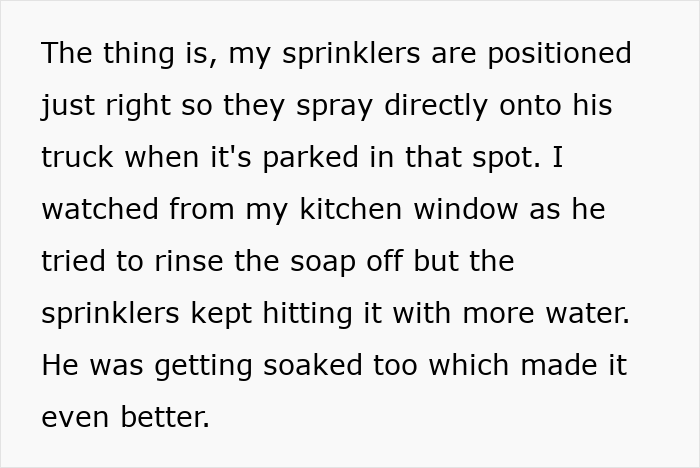
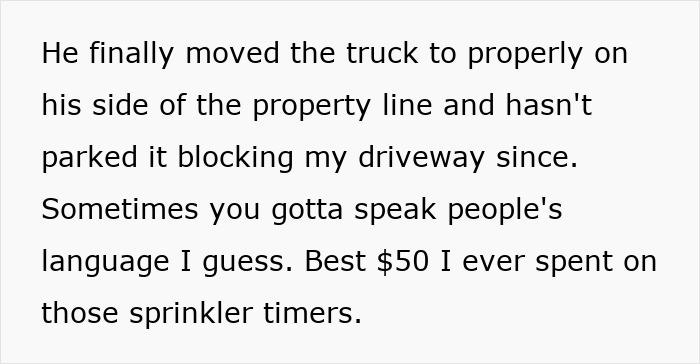
Image credits: Mundane-Kitchen-8387
There are some steps people can take if they have a neighbor like this

Image credits: dotshock/Envato (not the actual photo)
When a neighbor’s car wanders over the line and into your driveway, frustration and intrusiveness can be experienced. The initial step, though, is to ensure that you are certain of where your lines are. Pull out your official survey or plat from the county recorder or your closing package and, if necessary, hire a licensed surveyor to stake the corners. Once you’re confident about where your land ends and theirs begins, you’ll have clear evidence to rely on if the problem continues.
Whenever your driveway is obstructed, quietly take a photograph or short video that shows your vehicle and the offending car in relation to the property line, making note of the date and time. Keep a simple record of each instance: when it happened, how long the car stayed, and whatever brief conversation you had with your neighbor. Such a record not only will keep reminding you of the trend but will be invaluable in case you ever have to involve a third party.
When you happen to be feeling relaxed, pick a cordial moment, perhaps when you notice your neighbor in the outdoors or when neither of you is rushing, and bring up what you’ve observed. Speak from your own perspective, saying something like, “I’ve noticed cars edging across my driveway lately, and it’s been hard for me to get in and out.” Avoid blame or accusation, and offer a practical idea, such as moving a few feet over or parking on the street side. More often than not, a sincere request is enough for someone to correct their parking.
Property lines aren’t just imagined, they represent legal ownership

Image credits: halfpoint/Envato (not the actual photo)
And if polite conversation doesn’t work, consider adding physical reminders to the boundary, too. Low-profile stakes or markers can be an elegant and effective addition, or you can install removable bollards at the terminus of your driveway so that it is not possible to intrude without your permission. A diminutive “No Parking Beyond This Point” sign, elegantly installed, can also serve as an obvious visual reminder.
If those efforts do not succeed either, find a third party that is neutral. Cities and homeowner associations regularly have free or low‑cost mediation services offered specifically for neighborhood conflicts. A neutral mediator can guide both of you toward a sensible compromise before feelings get out of control. If you belong to an HOA with written guidelines covering parking and property lines, bring the problem to the board and let them enforce their own rules.
As a last resort, you have legal remedy. A well-written cease‑and‑desist letter written by an attorney will normally get neighbors to cease. For repeated blocking, you can sue in small claims court to recover damages for each transgression or, in bad circumstances, pursue trespass or nuisance suits with your attorney. Throughout, be polite in your tone; preserving a decent relationship may appear difficult to accomplish in the short term, but it will save you from pointless hostility and lower your own stress levels.
By asserting your boundary, documenting each incident, speaking politely but firmly, and then escalating only in steps as required, from friendly markers to mediation to law, protecting your property and your mind while giving your neighbor every chance to get on board.
People though the netizen’s plan was hilarious and some gave a few ideas







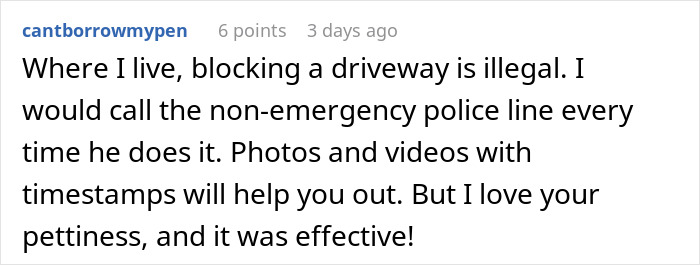








Others shared similar stories
